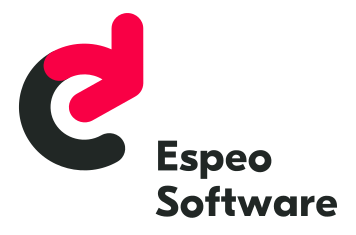The term Fintech is a combination of the words “finance” and “technology”: it refers to an innovative start-up that uses technology in order to rethink financial and banking services. Following the economic crisis in 2008, many bankers and traders left major financial centres and embarked on entrepreneurial adventures to reconsider the model of finance through technological innovation. Their goal? To make finance easier and more accessible by offering better and cheaper services. In ten years, the banking sector has experienced more changes than in previous 200 years! Fintech is developing in all areas, from savings management to individual loans, through corporate financing or online payment. When talking about Fintech, we should remember that today, one of the most important things in the world of financial software development is mobility. So, here we have 5 features for Fintech app or online payment applications.
Financial software development
1. Simplicity of data analysis
Fintech is on a quest for simplicity. The highly functional and advanced Fintech services allow the uninformed users to perform their financial operations differently. However, the quest for simplicity is not only supposed to make the service problem-free, but it also aims to streamline the entire purchase process. Smooth implementation processes, thanks to new technology, make the applications based on Fintech more enjoyable and equipped with a greater range of possibilities. The applications are also able to create financial programs, display transaction history or an intuitive summary.
The app is to become a simple analytical tool for data compilation, and so it should be simplified as much as possible. Users can not only track their financial activities, no matter where they are, but they can also easily access relevant information and their transaction history. The increase in the popularity of banking applications creates an urgent need for domestically developed tools to understand the various types of transaction activities.
2. Wide functionality and integration
A mobile application must be perfectly integrated with many platforms. Fintech focuses on many sectors, which means that particular applications can be designed for customers seeking varied solutions. Mobile payments, crowdsourcing and financial resource management are among the most demanded requirements and features. Applications must, therefore, be compatible with each other, so they can “communicate” and exchange information.
The integration of numerous applications and functions into one is extremely important for both individual and business customers. This includes joining all bank accounts or collecting various data together. An important role is also played by the application usability across different platforms. So, here, we are talking about a perfect business integration wherever customers expect it.

3. More possibilities
The basic needs of customers have not changed with the advent of Fintech. Therefore, applications must respond to them adequately. It is important to add new system improvements that have already been working alongside functionality. In this way, controlling expenses, savings and taking out loans will become even easier. Another important feature is providing as intuitive interface as possible, in order to save time while using the application. Furthermore, adding newer functions which develop and expand the old ones is extremely important from the users’ viewpoint.
Innovation is the key, and artificial intelligence used by Fintech is a good example of that. The complex algorithmic processes “think” for the user, who only needs to explore these possibilities. What is more, an inappropriate consumer behaviour should be monitored, detected and counteracted.
4. Blockchain allows new business models
Blockchain – recent innovation, although it did not reach yet widespread retail adoption, it is being employed in more and more various Fintech applications. A blockchain is a series of blocks that records data in hash functions with timestamps so that the data cannot be changed or tampered with. This gives the products that rely on the blockchain technology edge in the sense that most of the trust-providing proxies (banks, custodians, money agents) from the regular Fintech or financial world can be exchanged to close to costless automated algorithms and protocols secured by the cryptography as oppose to be secured by the costly or subjective regulatory bodies.
Reliance on the technology brings not only cost savings but can allow creation of completely new business models unheard of in the current financial ecosystem due to technical debt and obscurantism or simply cost prohibition. Peer to peer micropayments directly between users, insurance or loan products offered directly between retail users that bypass rating agencies and other proxies is only a beginning. Innovation in form of Central Bank Digital Currencies is also entering government levels. Some countries are looking at how the stable crypto-secured digital currencies could be implemented on the nation levels.

5. Personalisation
Understanding customers’ tastes is today the basic principle that governs global marketing. It’s no different as far as mobile banking technology and Fintech are concerned. Fintech app must, therefore, be personalized to evoke the feeling of uniqueness. What is important, typical banking solutions often ignore the customers’ needs to stand out of the crowd, to be an individualist. That’s why, Fintech start-ups can be the answer to customers’ wants and desires. With the Fintech app, you can easily match the product sold to the potential client. The range of products can thus be adapted to the customer and presented in the best possible way. In the process of individualization, Fintech app integration with personal applications, including social media, establishes the strongest possible relationship with the user. As a result, financial operations are more enjoyable and bring people closer together.
Summing up
Fintech has turned into a significant initiative that is taking the financial world markets by storm. It is a great opportunity for application developers, because despite the software you create – whether you provide financial solutions or add integration options for external applications (e.g. mobile wallet), this is the period in which investments in this technology simply pay off. So, in case there is a downturn on Fintech apps, you need to know, and follow, a few rules that will make your Fintech app stand out; this will allow you to take over the customers’ minds and win their hearts.




